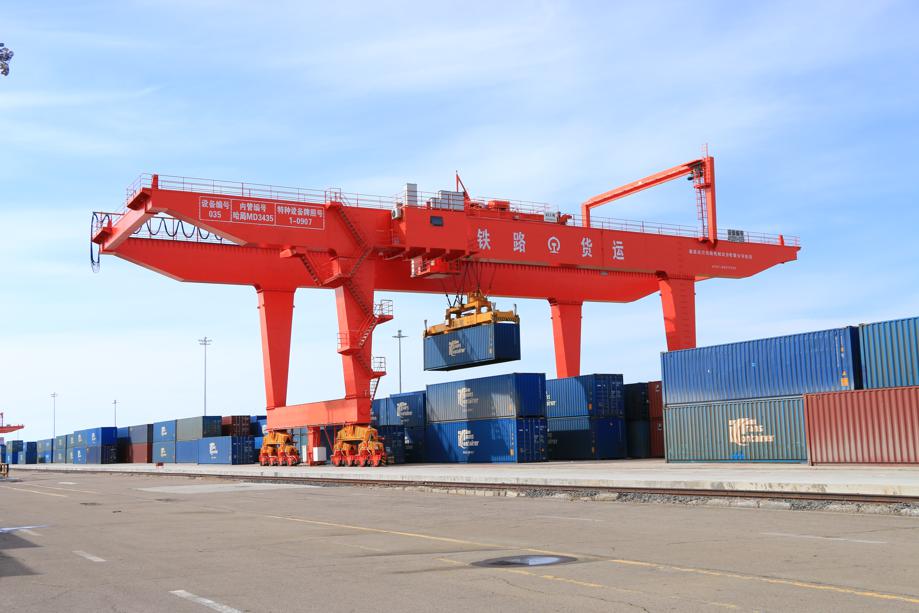Railway freight lines connecting China to Europe via northeastern land ports recorded 1,443 inbound and outbound trips in the first quarter of the year — a year-on-year increase of 7.6 percent — according to China Railway Harbin Group.
Trains that pass through Manzhouli Port in the Inner Mongolia autonomous region and through Suifenhe Port and Tongjiang Port in Heilongjiang province moved 151,000 standard-sized shipping containers in the first quarter, a record high and up 6.9 percent year-on-year.
The number of return freight trains through the three ports in the first quarter ranked first in China.
Use of China-Europe freight train routes has grown substantially since the beginning of the year, with the monthly average volume passing through Tongjiang Port, for example, increasing by 166 percent year-on-year.
There are currently 24 routes in use by China-Europe freight trains through the three ports, connecting more than 60 Chinese cities with European cities in 14 countries, including Russia, Germany, Poland and Belgium.
The types of goods being transported have also expanded. Mainly electric products at first, they now encompass 12 major categories that also include daily necessities, general merchandise, mechanical equipment, metals, agricultural products and timber.
“The goods transported through the Manzhouli Railway Port have evolved from daily necessities such as toothpaste and toothbrushes to large-scale machinery, high-end electronic products and domestically produced automobiles,” said train driver Zhang Xiaojun.
“I feel proud of having witnessed the rapid development of the country in international trade.”
On March 14, a China-Europe freight train loaded with 55 containers carrying 1,300 metric tons of amino acids left the Harbin International Container Center Station bound for Tilburg, in the Netherlands, launching the first China-Europe freight train route from Heilongjiang to the Netherlands.
The route, covering 10,257 kilometers, passes through the Manzhouli Railway Port, and the train is expected to arrive in Tilburg soon.
To ensure the successful operation of the freight train, China Railway Harbin Group and a local logistics company provided customers with convenient and efficient full-process services such as train booking, export customs declaration and train transportation.
“Recently, we established warehouses in the Netherlands. Compared to maritime transportation, the China-Europe freight train saves two-thirds of the transportation time, which is beneficial for the company’s future expansion into the European market,” said Ha Wanjun, deputy general manager of Heilongjiang Yipin Biotechnology Co.
In recent years, to ensure the smooth delivery of imports and exports, China Railway Harbin Group has promoted proactive measures, such as online services offered by the e-commerce website 95306.cn and special transportation plans for different enterprises.
In the second quarter, renovation projects are expected to begin on the Harbin-Suifenhe Railway and the Xilingkou to Boketu section of the Harbin-Manzhouli Railway.
The group said the projects aim to address issues such as steep gradients, tight curves and low train speeds on existing lines, with the goal of improving efficiency.
The projects will be important in helping to guarantee the shipping performance of China-Europe freight trains, it said.
The group added that it will make full use of the advantages of such channels, further strengthen transportation organization and strive to promote the high-quality and sustainable development of the China-Europe freight service.

















